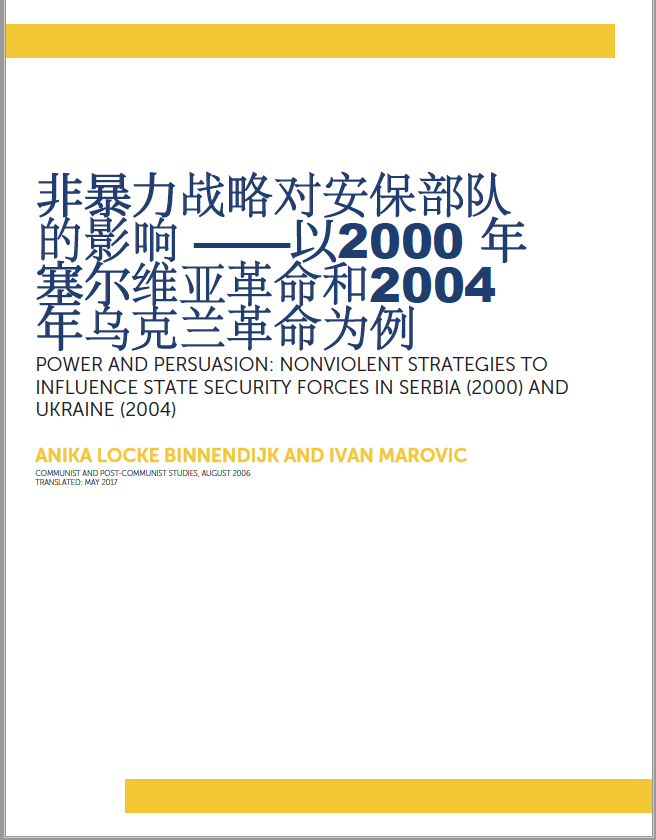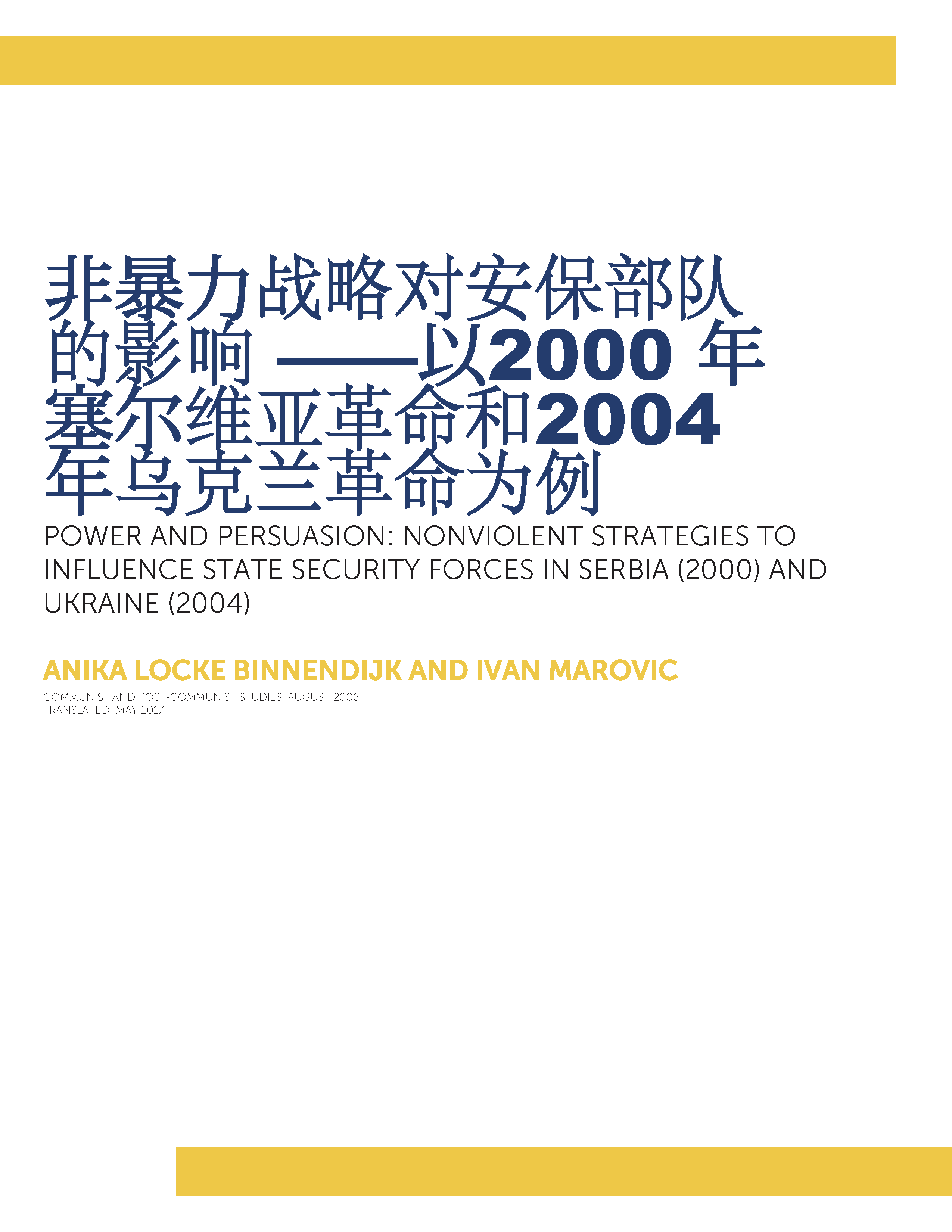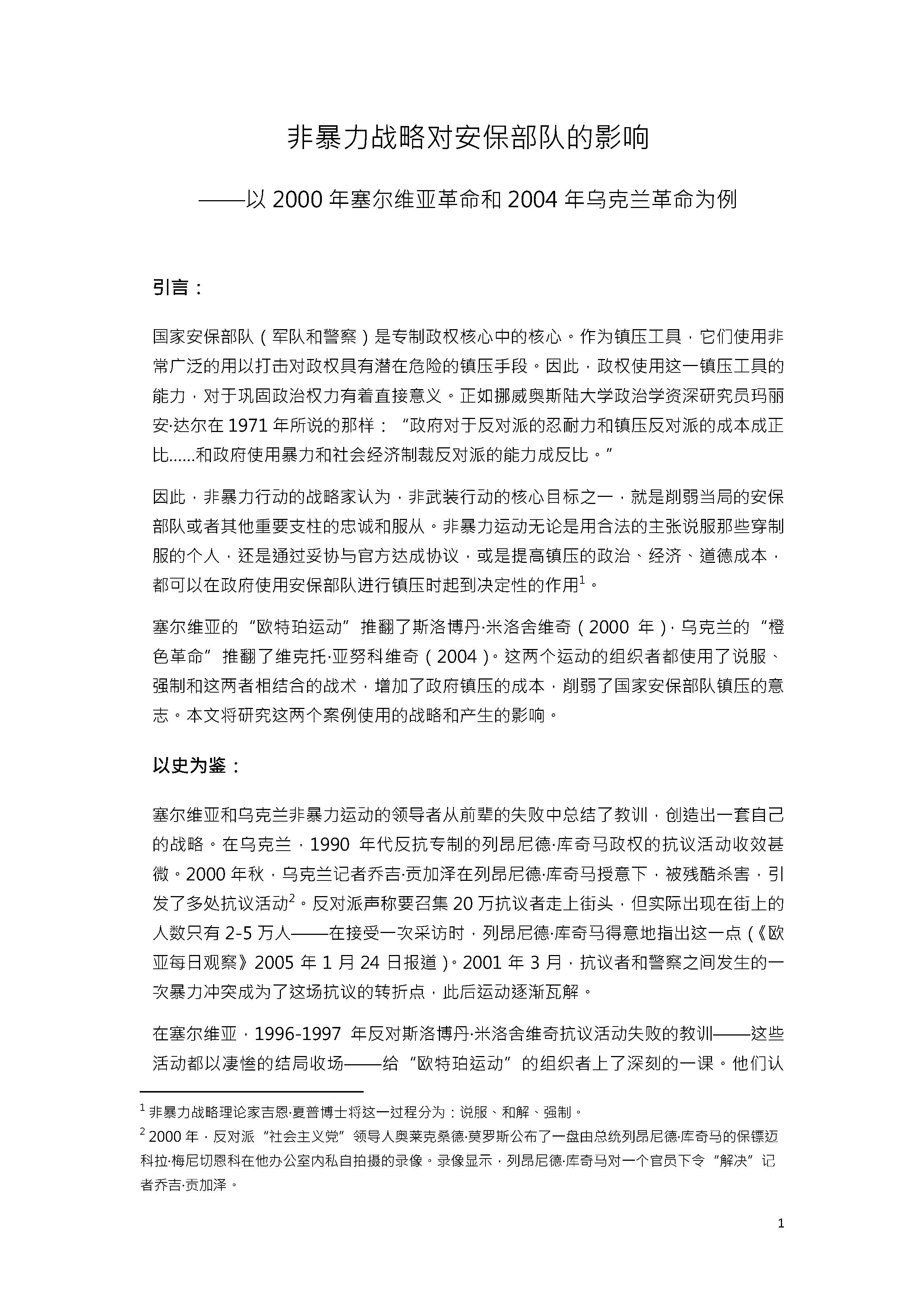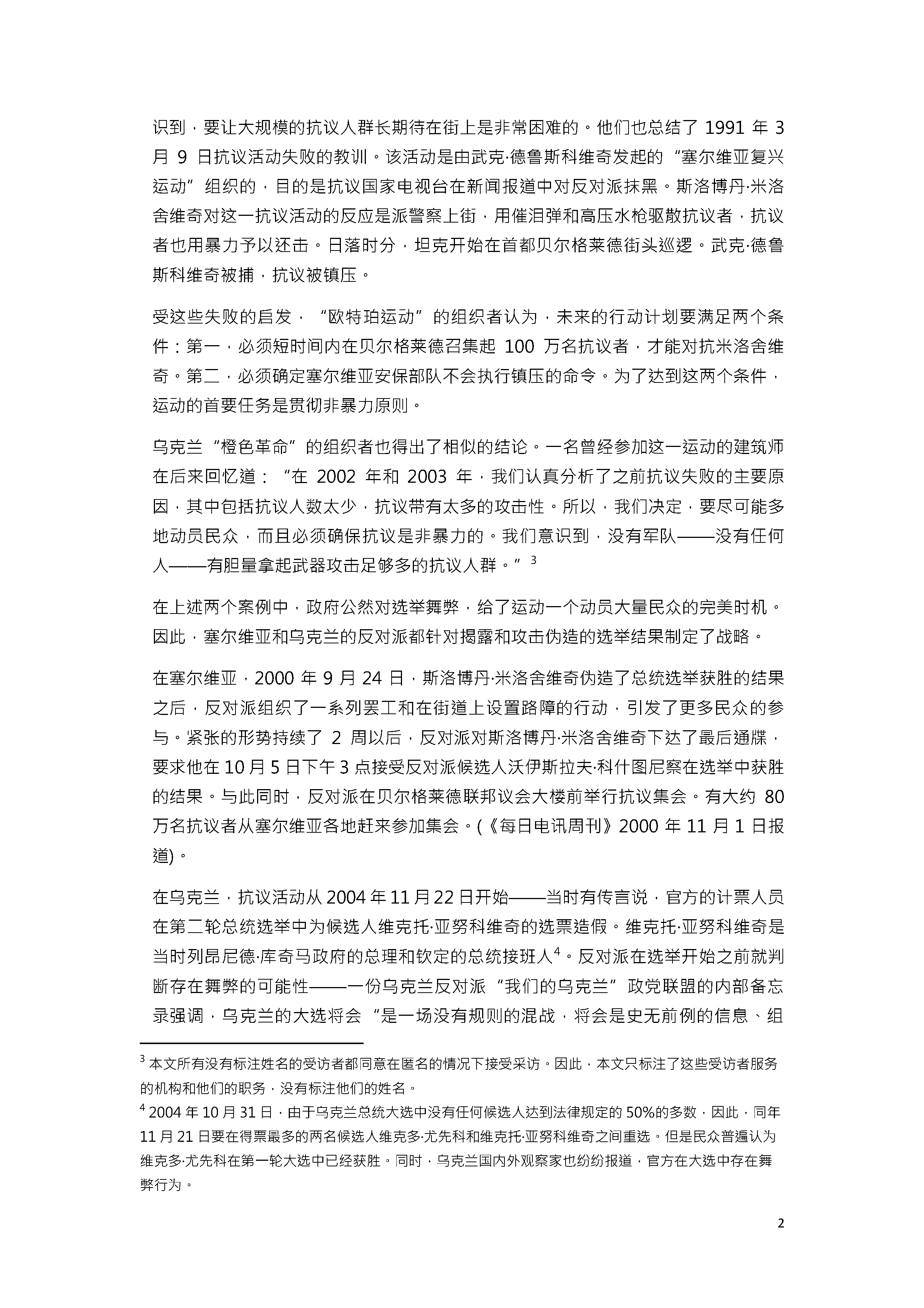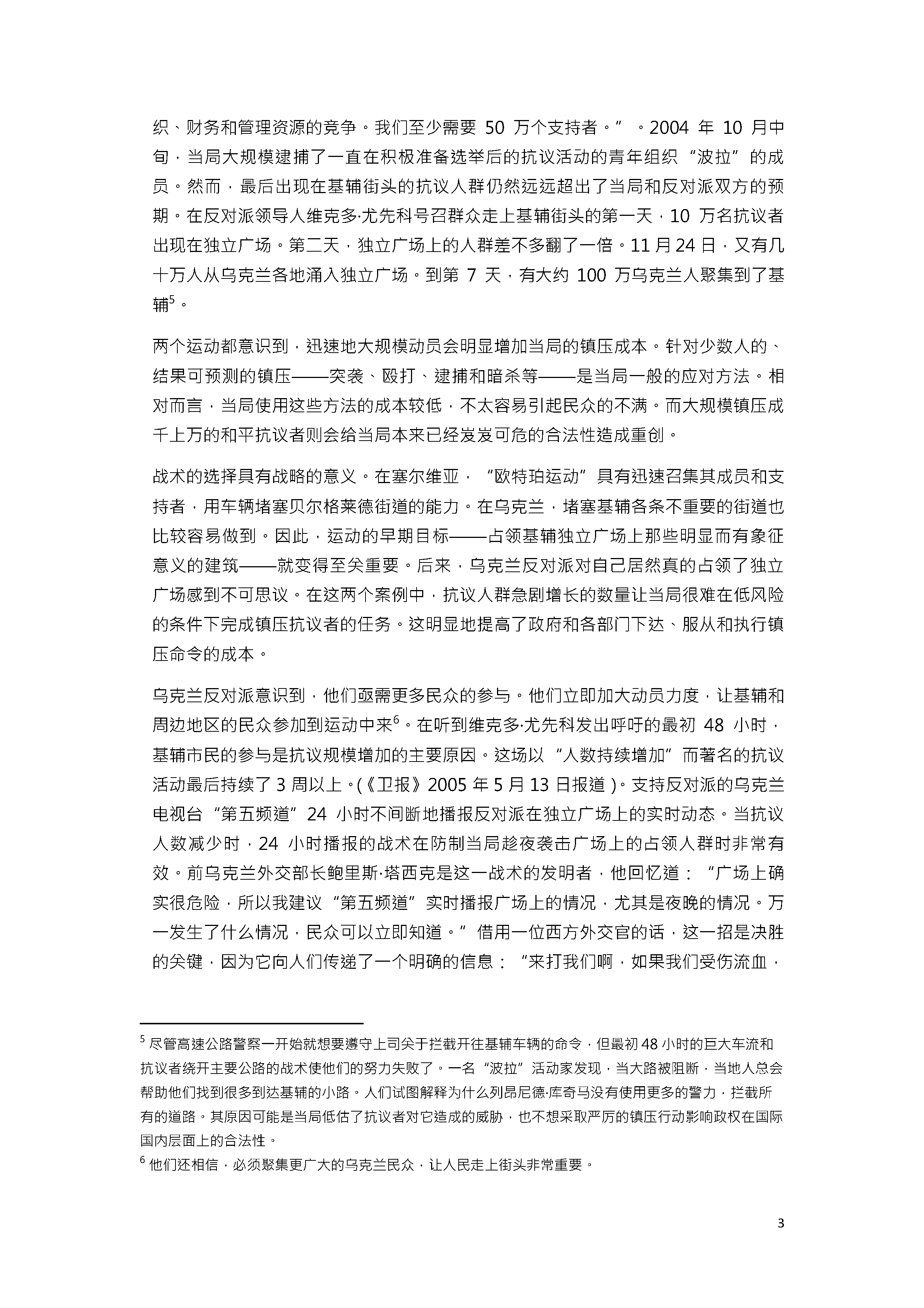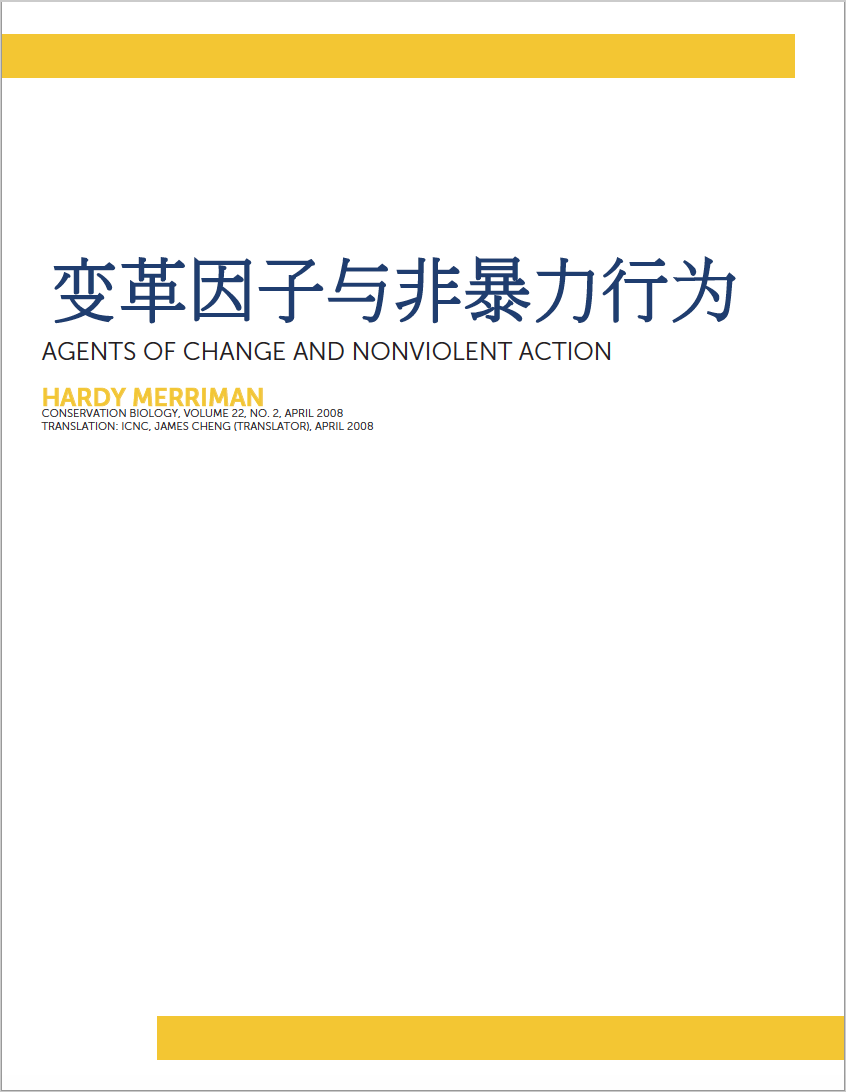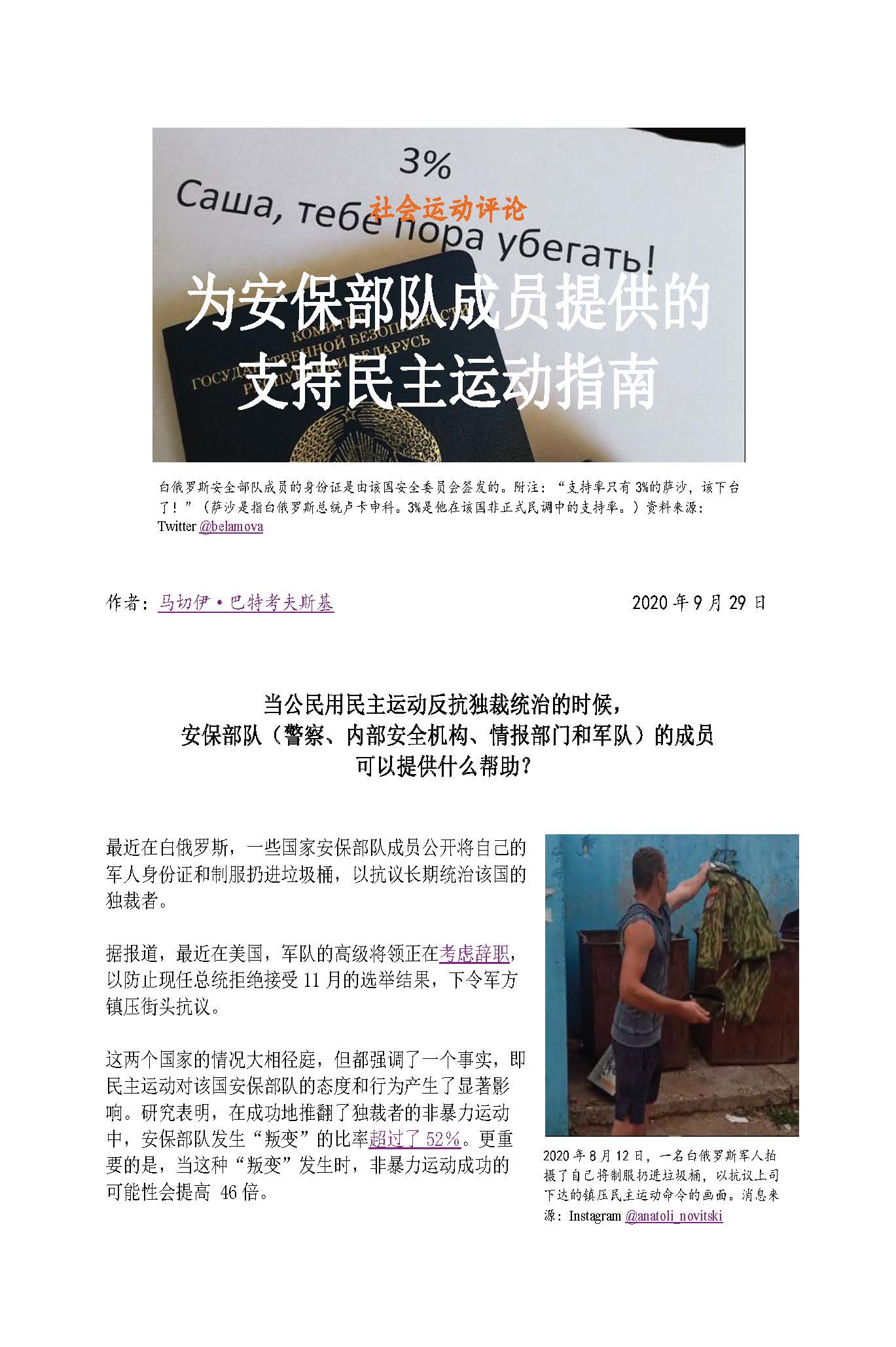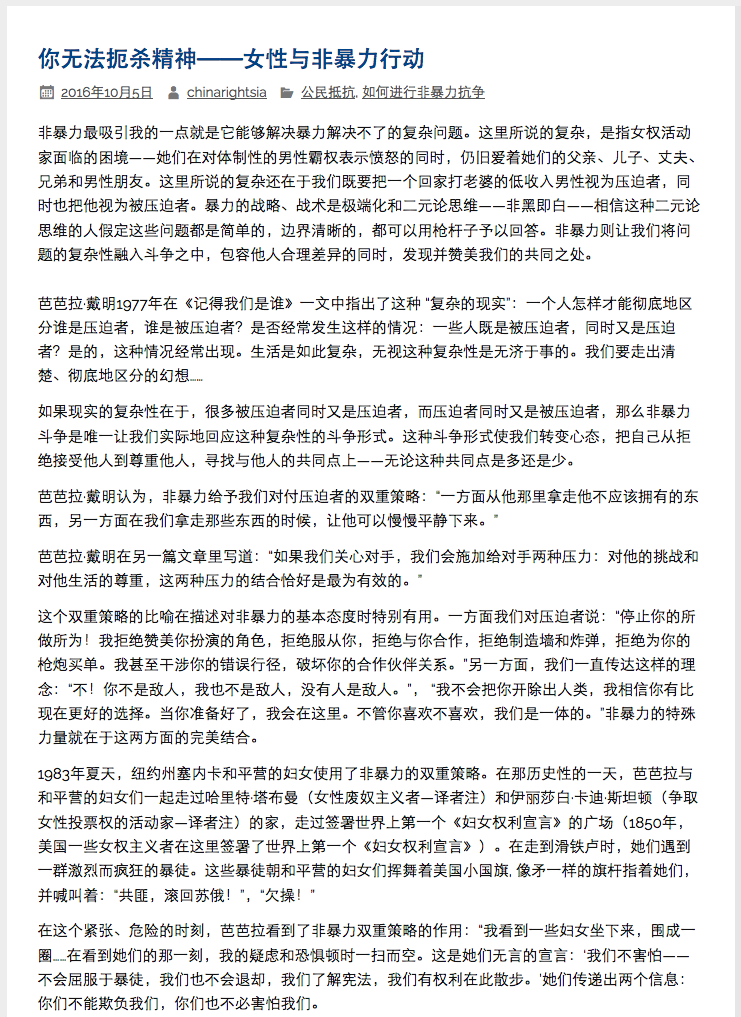非暴力战略对安保部队的影响 ——以2000 年塞尔维亚革命和2004 年乌克兰革命为例
During the Serbian Otpor movement to oust Milosevic (2000) and the Ukrainian ‘‘Orange Revolution’’ (2004), the organizers developed explicit strategies to increase the costs of repression and to undermine the willingness of state security forces to engage in violent acts against them. By employing varying combinations of persuasion and deterrence tailored to the particular institutions they were addressing, the movements were able to successfully avoid a major crackdown.
Communist and Post-Communist Studies, August 2006
Translated: May 2017

